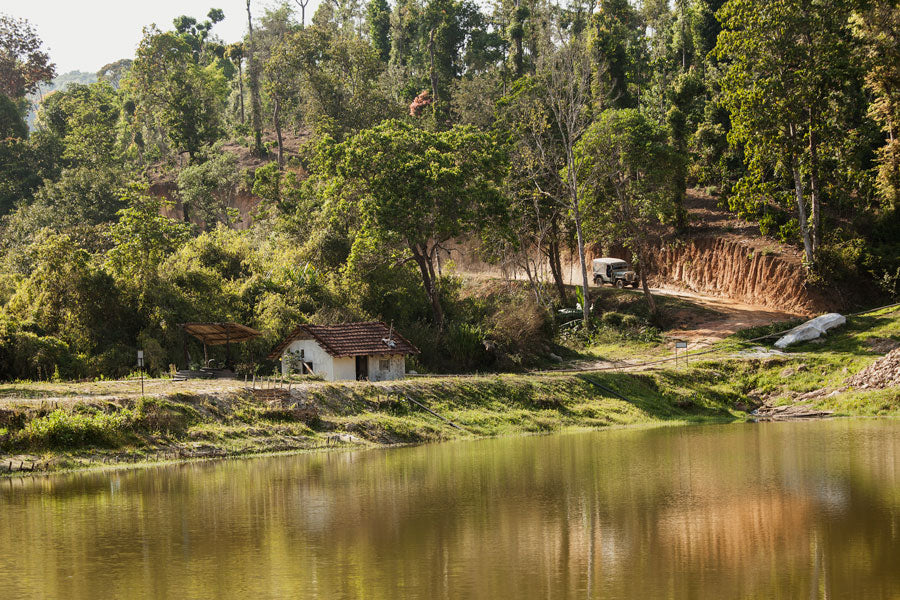New year. New coffee. New estate. We’re thrilled to be featuring Harley Estate as part of our limited edition Producer Series for the first time! If you’ve been around for a while, you’d know about our much loved Pichia Fermentation from the estate — a seasonal release we offer for a very limited time each year. This year, an experimental lot from the estate scored very high on the cupping table, making its way to our Producer Series lineup.

Harley Estate is a heritage institution that was established by the British in 1864 and later taken over by the Kutumba family. In recent times, Purnesh and Shankar have kept the legacy going with a keen eye for environmental preservation while passionately growing specialty coffee.

To process this lot, Purnesh and Shankar experimented with the Wet Plum method where whole ripe cherries were stored in an airtight container for fermentation with the introduction of an in-house plum bacteria. Once the correct level of fermentation was reached, these cherries were slowly sun-dried to enhance the green beans’ rich, fruity notes.

This coffee has sweet aromas of tea rose, dried fruits and apricot, and leaves a lingering floral aftertaste. A manually brewed cup has notes of tangy orange, honey, juicy red apple and floral tea rose. However, roasting this coffee was no easy feat, as the coffee has a lot of fruit notes at different roast levels. This was solved by targeting certain characteristics to highlight specific notes during the roasting and cupping process.

At the roastery, these particular unroasted beans were deep brown and orange in colour, which indicates that they had absorbed sugar from the cherry during fermentation. Plus, the controlled fermentation with the bacteria brought out intense coffee attributes which is why care was taken to ensure that this coffee was roasted light and fast in order to not roast out the fruit, and also to highlight the acidity. Senior Roaster Suman Das says, “Sampling the clean and complex fruity notes was quite exciting! I was surprised to note that there were mild notes of several fruits with a sparkling acidity that I found refreshing”.

The roasting team had to make sure not to caramelize the coffee too much so they could highlight the high malic acidity of apples and exotic fruits. Too much caramelization would have overpowered the juicy fruits and ruined the taste. “What’s delightful about this coffee is the way it was processed, where they fermented the cherries using bacteria isolated from plum. Roasting one of the highest-scoring coffees in India is a privilege and comes with a lot of responsibility.” adds Das.

Harley Estate grows both Arabica and Robusta coffee plants along with areca, pepper, cocoa, and cardamom. The farmers have a keen interest in developing special sustainable techniques of coffee growing, thereby elevating the experience of coffee consumers both in India and abroad. Some of the practices involve converting all the pulped outer layer into organic fertilizer, purifying and re-using the water used for pulping, and avoiding chemical sprays.






